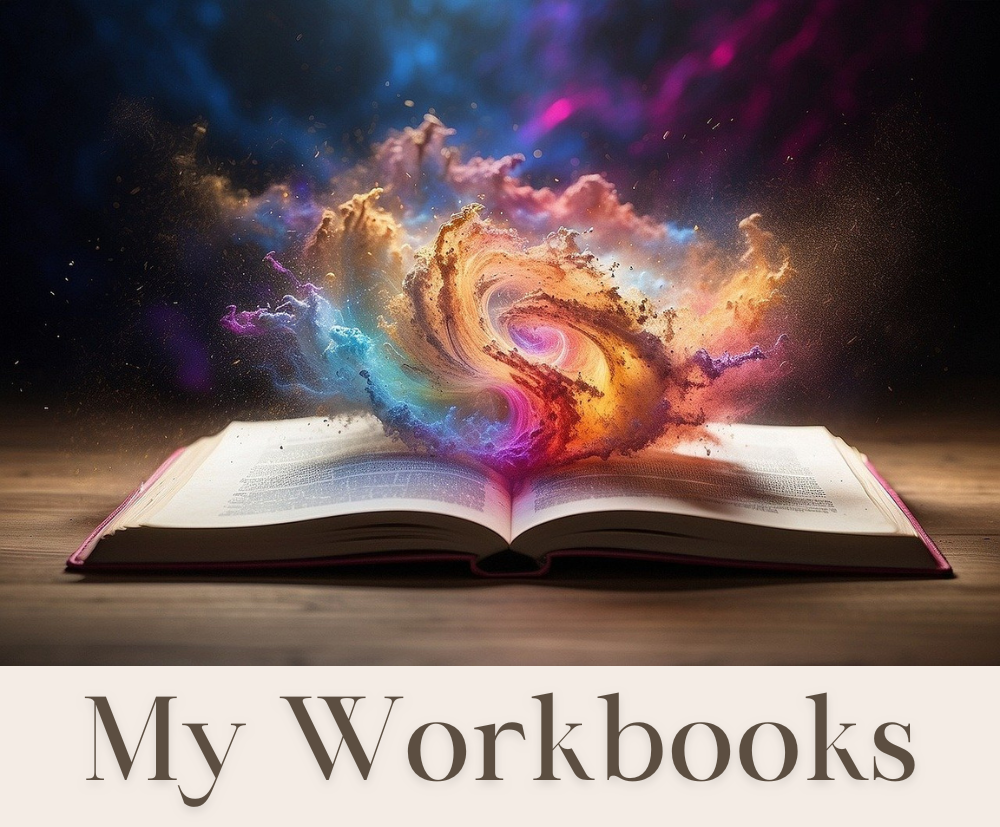What to Do When You’re Too Overwhelmed to Be Productive
Feeling emotionally overloaded can be a frightening and paralyzing experience. When your mind is foggy and scattered, your body feels heavy and drained, and your heart beats with anxious energy, it might seem impossible to get anything done.
You might stare at your to-do list and feel frozen, frustrated that you “should” be productive but simply can’t. If this is where you are right now, please hear this: there is no shame in feeling overwhelmed. It doesn’t mean you’re lazy; it means you’re human and your system is on overload.
Being too overwhelmed to function is a common, very human response to prolonged stress. Constant pressure and worry can push your nervous system into survival mode, a state where everything feels like too much.
So instead of trying to power through the fog (which only fuels the stress), let’s explore another path. Here are five grounded, practical tools you can use to calm your nervous system and find your footing again, even if it’s just a tiny step at a time. These aren’t about fixing yourself or forcing productivity; they’re about helping you come back to yourself when overwhelm has taken over.
1. Breathe to Calm Your Body and Mind
When you’re overwhelmed, your body is likely in a state of high alert, your heart might be pounding, and your breathing might be shallow or rapid. One of the quickest ways to signal to your nervous system that it’s safe to relax is through slow, deep breathing.
Deliberately taking slow breaths activates your body’s natural relaxation response, helping to lower your heart rate and even reduce stress hormones like cortisol. In other words, breathing deeply tells your body, “We’re safe, you can calm down now.”
Try this: Find a quiet spot. Inhale gently through your nose for a count of 4, then exhale through your mouth for a count of 6 or 8. As you exhale, imagine releasing tension from your body. Repeat this for a few minutes. This simple breathing exercise can quickly soothe that panicky, frazzled feeling. You’re effectively nudging your nervous system out of fight-or-flight mode and into a calmer state.
If you catch your mind wandering while you breathe, that’s okay. Just gently bring your focus back to the air filling your lungs. Feel your feet on the floor and the weight of your body on your chair as you exhale. After a few rounds, you might sense your shoulders dropping and your heartbeat steadier.
2. Anchor Yourself With a Somatic Reset
When overwhelm pulls you up into your head, this brings you down into your body. Clear, physical “I am supported” signals help your nervous system stand down so your mind can think again.
Set up (10–15 sec)
Sit with feet flat, legs uncrossed, back supported.
If standing feels better, place feet hip-width apart with a slight knee bend.
Step-by-step (60–120 sec)
Foot press (isometric): Press both feet into the floor for 5 seconds, release for 5. Repeat 3 times. Notice heel, ball, toes.
Seat awareness: Sense the weight of your pelvis on the chair. On each exhale, let yourself sink 1–2% heavier.
Steady breath: Inhale to 4, exhale to 6 for 5 cycles. Optional: add a soft hum on the exhale to deepen the calm.
Name sensations: Silently label what you notice: warm/cool, firm/soft, steady/heavy. Two or three words are enough.
Why it works
Pressing through the feet and feeling the chair boosts proprioception (your sense of contact and position), which tells the brain, “we’re safe and supported.”
Longer exhales and gentle humming nudge the parasympathetic system (your rest-and-digest mode) to take the lead.
Quick variations (pick one if you need more)
Wall lean: Stand with your back or shoulder against a wall; take 5 slow breaths while feeling that steady support.
Hand brace: Press palms into your thighs or the desk for 3 seconds, release 3 (3 rounds).
Micro-rocks: Barefoot or in socks, slowly rock heel → toes to heighten ground contact.
Can’t relax?
Too jittery? Slow the exhale (try 4 in / 8 out) and reduce the press intensity.
Feel numb or “floaty”? Add texture: stand on a rug edge, hold a cool glass, or place a paperback under one foot for a clearer sensation.
Eyes closed feels edgy? Keep them open and softly scan the room while you breathe.
Make it stick
Anchor this reset to transitions: before opening your inbox, joining a meeting, or starting the car. A sticky note that says “Feet + Seat” on your monitor can be enough.
3. Journal Out Your Feelings
When your head is crowded with anxious thoughts or heavy emotions, putting pen to paper (or fingers to keyboard) can be a powerful release. Think of journaling as opening a valve on a pressure cooker; it lets out the steam swirling inside. You don’t need to write anything profound or organized.
This isn’t about being productive; it’s about unloading the mental clutter that’s weighing you down. Writing down your worries and feelings can take them out of your head and make them feel more manageable.
Give yourself permission to write unfiltered. You can jot down exactly what you’re feeling: angry, scared, numb, whatever it is, without judging it. Sometimes, just acknowledging “I feel completely overwhelmed and I don’t know what to do” on paper can bring a small sense of relief or clarity. It’s a way of saying “Okay, this is what’s going on inside me” instead of letting it all rattle around in your head. You might even discover insights into what’s triggering your overwhelm.
If you’re not sure how to start, try a gentle prompt. For example: “How do I feel right now, and what do I need?” Write down whatever comes to mind in response. There are no wrong answers. You might realize that beneath the overwhelm, you feel exhausted or afraid, and that what you truly need is a break or some reassurance. That kind of self-awareness is a huge first step toward feeling better. Even a few sentences in your journal is progress.
If a blank page feels intimidating, you can use guided journals or prompts to get the words flowing. (Here are some reflective prompts for emotional exhaustion that might help you get started.) The key is to approach journaling with compassionate openness: you’re not writing for anyone but yourself, so you can be honest. Once you’ve poured some of your thoughts onto the page, notice if your mind feels a little lighter or less foggy. That release is you returning to yourself bit by bit, creating space for calm.
4. Start with a Tiny Win to Build Momentum
When you have 100 things to do and zero energy to do them, the idea of catching up feels impossible. So let’s shrink the scope: pick one tiny task, something so small and simple that it almost seems silly, and do just that.
We call this a tiny win. It could be as basic as paying one bill online, emailing a quick reply to a colleague, or even getting up and refilling your water glass. The goal here isn’t to conquer your whole list; it’s to give yourself a quick success and remind your brain that you can still take action, however small.
Why do this? Because completing a tiny, concrete task can break the ice of paralysis. It gives you a hit of accomplishment and a bit of dopamine, which can improve your mood and confidence. When everything feels unmanageable, small wins make big problems feel more approachable. They create a positive feedback loop: “Hey, I did that one little thing, maybe I can do another.”
What might a tiny win look like? Perhaps you can clear off a cluttered corner of your desk. Or you make your bed. Or you take a shower and change into comfortable clothes. Pick something that can be done in 5 minutes or less. Set a timer if it helps, and gently push yourself to start.
Once it’s done, pause and acknowledge it: “I accomplished that small task, and that’s a win.” Maybe even say it out loud or give yourself a mental high-five. It might feel a bit funny, but celebrating small wins reinforces that progress is happening, even if it’s tiny.
Allow that one win to be enough for now. If you feel a bit of energy afterward, you can try another tiny task, but there’s no pressure to snowball unless it feels right. The point is that you’re proving to yourself that even in a state of overwhelm, you can create movement, however modest.
Each tiny win is like lighting a little candle in a dark room; one by one, those candles can slowly start to brighten things up. And if even the smallest task still feels like too much today, that’s okay, too; your tiny win might be resting or drinking a glass of water. Honor where you’re at.
5. Practice Emotionally Safe Self-Talk
Pay attention to how you’re speaking to yourself in this overwhelmed state. Are you telling yourself things like, “I’m so weak,” “I should be able to handle this,” or “I’m failing”? If that inner critic is running wild, it pours gasoline on the fire of overwhelm.
Now is the time to practice emotionally safe self-talk, in other words, self-compassion. This means talking to yourself with the same understanding and gentleness you’d offer a dear friend who was struggling. And far from making you “soft,” self-compassion has been shown to actually help people cope with stress more effectively and feel more resilient.
Imagine your closest friend came to you in tears, saying they’re completely overwhelmed and can’t get anything done. How would you respond to them? You’d likely offer kind words: “You’re doing your best, it’s okay to take it slow. You’re not lazy – you’re just going through a lot. I’m here for you.” Now, try saying something like that to yourself. It might feel strange at first, but it can be incredibly healing. You could simply mentally affirm, “It’s okay that I’m struggling. I’m not a failure for feeling this way. I’m proud of myself for dealing with so much.” These kinder messages counteract the shame and guilt that make overwhelm worse.
If you notice that “nagging voice” telling you you’re not doing enough, gently correct it as you would a child or friend: “I hear you, but I know I actually am trying my hardest. Resting now will help me more than beating myself up.” You can even write down a supportive statement and keep it visible (for example: “I am allowed to pause and breathe. I don’t have to do everything today.”). By practicing this compassionate self-talk, you create an internal environment of safety rather than fear. Over time, this makes a big difference; you start to feel less stuck in a loop of panic and more capable of moving forward when you’re ready.
Being kind to yourself in a hard moment is not self-indulgence or “letting yourself off the hook.” It’s actually a strategy for recovery. Harsh self-criticism only increases stress and paralysis, whereas self-compassion lowers anxiety and builds resilience. So the next time you catch your inner dialogue turning cruel or demanding, pause and take a breath.
Deliberately choose a softer thought. You might put a hand on your heart and simply say, “This is really hard right now, and I’m going to give myself some grace.” Treat yourself as you would someone you love. You deserve that same kindness, especially now.
Final Thoughts
There is no single magic trick to “cure” overwhelm, but the small practices above, done consistently, can gradually calm your mind and body. The truth is, your productivity will return naturally when you’re rested and emotionally balanced, not by shaming yourself or pushing harder when you’re already at your limit. So permit yourself to slow down without guilt.
As you try even one of these tips, a minute of deep breathing, a short journal entry, a tiny win like tidying your nightstand, you are taking a step towards feeling better. Over time, these little acts of self-care start to add up. You may find a bit of that mental fog lifting, or a spark of motivation glimmering again.
Be very patient and gentle with yourself during this process. You’re not “behind” on life; you are exactly where you need to be, learning how to care for yourself in a new way. Feeling overwhelmed right now doesn’t mean it will be this way forever.
Today, see if you can do just one kind thing for yourself, no matter how small. Maybe that’s trying one of the practices from this list, or maybe it’s simply closing your eyes and resting for a few minutes. That is progress. Take a deep breath, be kind to yourself, and take things one gentle step at a time. You’ve got this.
Take care,
-Emilia ♡
If you need more support, you might find my free Self-Care Blueprint helpful – it’s a simple guide to help you assess where you’re running on empty and create a personalized plan to refill your cup.
National Library Of Medicine. (July 6, 2017). Prefrontal cortex executive processes affected by stress in health and disease.
National Library Of Medicine. (July 12, 2021). Somatic experiencing – effectiveness and key factors of a body-oriented trauma therapy.
Scientific Reports. (September 29, 2021). Benefits from one session of deep and slow breathing on vagal tone and anxiety in young and older adults.











Start your year with ease, not overwhelm. These positive statements encourage slow living, self-kindness, and letting go of pressure, because you don’t need to hustle to feel whole.